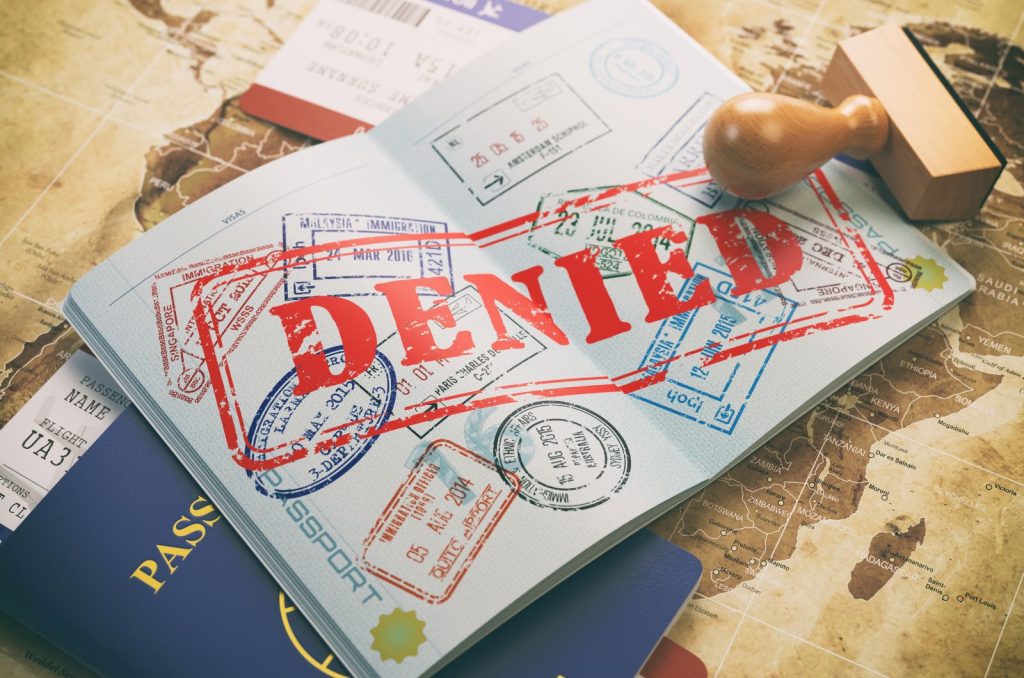
Imagine standing at the border, enthusiasm radiating as you envision your upcoming exploration of Israel, only to be halted by a stern face delivering an unexpected announcement: you have been refused entry. The curiosity flooding your mind is quickly replaced by a surge of anxiety, leaving you to grapple with a cascade of unanswered questions. Why were you refused? What are your rights? How is it possible to approach this unexpected turn of events?
Entry refusal into Israel, a reality that affects a number of travellers annually, is a topic shrouded in uncertainty and complexity. The ability to navigate this challenge can shape your travel experiences and potentially your personal reputation. Let us embark on a journey to unravel the intricacies of the legal framework surrounding entry refusal.
Introduction
Imagine the anticipation and excitement one feels when heading towards a country celebrated for its historical richness and significance, like Israel. Now, imagine the shock and stir of emotions when confronted with a refusal of entry into the promised land. This is a reality faced by some travelers, a truth as palpable as the mixture of curiosity and anxiety that hums in the air at border checkpoints. Such experiences underscore the importance of comprehending the legal framework that enshrines entry refusal, as it exists not just to facilitate law enforcement but also to safeguard the rights of every individual seeking entrance into Israel. A close examination of this matter doesn't just shed light on the complexity of immigration laws, but also helps foreigners better prepare for unexpected entry denial and grasp the professional services available to rectify this thorny issue.
The Legal Framework
Understanding the legal framework related to refusal of entry into Israel can significantly alleviate the anxiety and uncertainty surrounding this issue. Under Israel's entry law, border control officers possess the authority to refuse entry to any individual who poses security concerns or does not meet the visa requirements. This law applies to everyone, be it a seasoned traveler or a first-time visitor.
An important factor that counts heavily while entry decisions are made are the previous immigration violations, if any. Israel, like any other country, takes its immigration laws quite seriously. Any past infringement can weigh against the individual, impacting their ability to cross the Israeli border in the future.
In the next section, we'll delve deeper into some real-world cases of refusal of entry and explore the diverse reasons behind these decisions. Knowledge about both the legalities and realities can be beneficial in countering potential entry refusal situations.
Cases of Refusal
Israel holds a reputation as a country vigilant about its security, resulting in numerous instances of entry refusal. For instance, an American professor was denied entry due to alleged involvement in a movement promoting boycotts against Israel. Perception of a threat to national security, a prevalent factor, led to an unexpected hurdle in her travel plan.
In another case, a renowned musician faced refusal of entry due to previous immigration law violations. The repercussions were not only personal inconvenience but also disappointment for his fans eagerly awaiting his performance in Tel Aviv.
A less dramatic, but no less frustrating scenario is a refusal on the grounds of incorrect or insufficient visa documentation. In these instances, people have been turned back at the border unable to participate in business meetings, family events, or sightseeing in Israel's historic sites.
However, positive resolutions exist, like travelers leveraging assistance from experts such as Joshua Pex – Israeli Immigration law firm, to overcome their entry obstructions successfully.
Implications and Solutions
Being denied entry into Israel can have far-reaching implications. More than just a minor inconvenience, it may result in significant financial losses from non-refundable travel and accommodation bookings. It can disrupt intricate travel plans and also result in considerable emotional distress. Furthermore, a refusal of entry can potentially damage one's reputation, as it appears on immigration records and can pose issues for future global travel.
A crucial approach for individuals facing refusal of entry is to seek professional legal help, notably from law firms specialized in Israeli immigration policies such as Joshua Pex. These experts bring their in-depth understanding of immigration laws and extensive experience to the table, offering practical advice and assertive representation. By utilizing their services, travelers can effectively combat any refusal, ensuring a smooth journey into Israel. Navigating through the complexities of the legal system becomes considerably simpler with professional guidance, eliminating unnecessary stress and addressing the issue efficiently.
For more information >> https://www.legalimmigrationisrael.com/blog/refusal-of-entry-into-israel-of-a-foreign-spouse-in-the-seventh-month-of-pregnancy-due-to-counseling/
